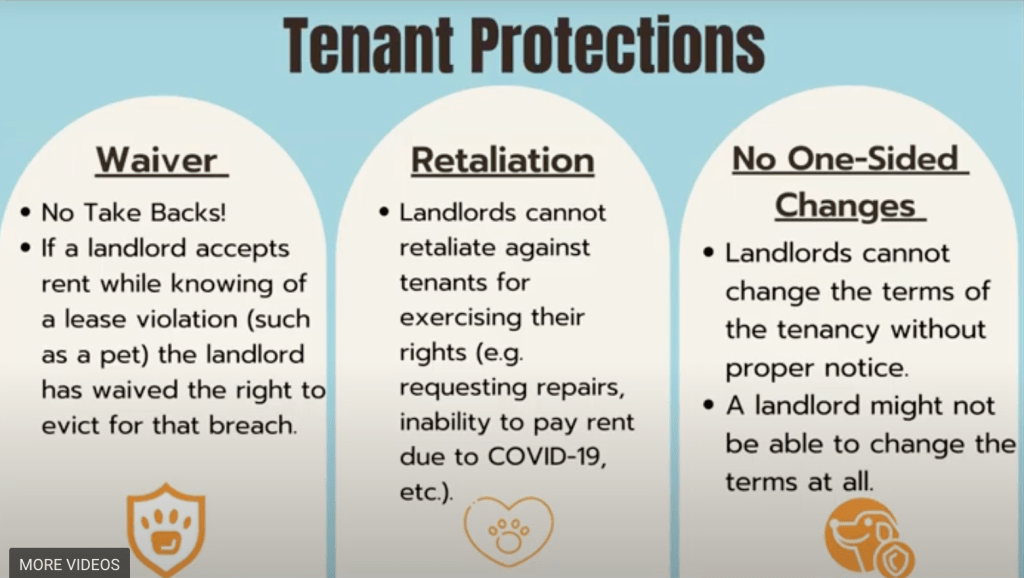Across the nation, evictions are happening on a large scale. Moving suddenly can be especially challenging when a family has pets, and pets can also be used as a landlord’s “excuse” for an eviction. Maddie’s® Fund website explains that “many individuals and families are being forced out of their homes due to having pets. New owners or deceitful managers use the threat of eviction to force out long-term tenants from rent-controlled properties so they can increase the rent. Heartbroken and desperate, these people believe they have no choice but to surrender their beloved pets to a shelter. In almost every circumstance, the threat of eviction was illegal. With the growing housing crisis in Los Angeles no one should be illegally evicted because of their companion animal.”
The local animal shelter may be the first call when a tenant is being threatened with eviction, and intake staff may be able to prevent relinquishment and keep the family together if they can direct owners to groups that can help them stay in their home. On Monday, Dianne Prado, JD, Executive Director of Housing Equity and Advocacy Resource Team (HEART L.A.) a non-profit public interest law firm that helps to keep people and their pets housed together in LA county, discussed important housing rights with shelter leaders, managers and staff at Maddie’s® Weekly Community Conversations-National Call. HEART L.A. provides eviction prevention via education on housing rights and outreach, free legal representation to prevent evictions, technical assistance to provide advice and resources and policy advocacy.
On the call, Prado gave examples of what landlords legally can and cannot do:
She also highlighted statues in the Federal Fair Housing Act (FHA) and Americans with Disabilities Act (ADA), which explain how support animals without specialized training differ from service animals with specialized training. Even when a landlord forbids pets, a tenant with a mental or physical impairment that substantially limits daily activities can request what’s called “reasonable accommodation” from their landlord to acquire an assistance animal(s) to perform tasks or provide emotional support. The landlord is allowed to request an emotional support animal (ESA) letter.
If eviction can’t be avoided or if the situation is untenable, moving with pets can be a bit easier if an owner can:
- Create a pet resume
- Maintain a spay/neuter certificate
- Maintain vaccination records
- Provide appropriate licensing documentation
- Maintain an ESA letter if needed
Finally, Prado reminds us that housing is a right. It’s up to all of us to help each other by:
- Advocating for pet inclusive housing with no pet fees
- Advocating for a right to counsel (http://civilrighttocounsel.org/map)
- Advocating to end discriminatory insurance policies
- Advocating for rent control in your local city, county and state
- Advocating to abolish evictions
For more information on how animal ownership intersects with housing rights, Dianne Prado’s full presentation can be found here.



